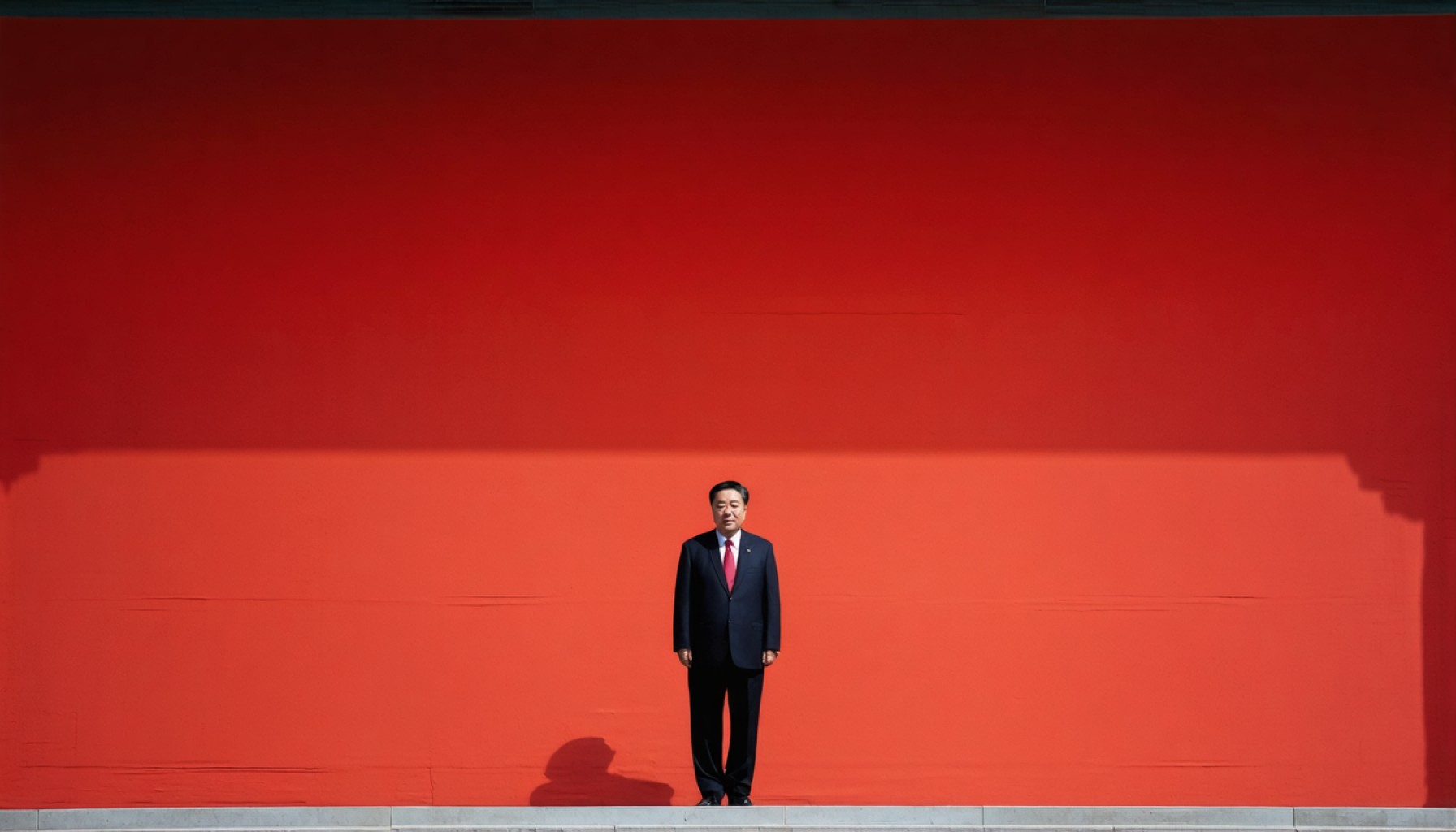- Jian Chaoliang, a high-ranking Chinese official, is under investigation for violations of party discipline and law.
- The Central Commission for Discipline Inspection is leading the scrutiny, indicating a serious audit of Jian’s activities.
- Jian, born in 1957, has held significant positions, including Governor of Jilin Province and Communist Party Secretary of Hubei.
- Despite his prominent political career, Jian’s actions are now under a shadow of suspicion, questioning his legacy.
- This investigation is part of a larger anti-corruption campaign emphasizing transparency in China’s political landscape.
- The case underscores the risks inherent in political life and accountability for those wielding influence within the government.
The sharp gaze of China’s most unyielding watchdog has turned once again toward a high-ranking official. Jian Chaoliang, a figure well-embedded within China’s political fabric, now faces a storm as he undergoes intense scrutiny for potential breaches of party discipline and law. The Central Commission for Discipline Inspection recently announced the chilling audit that Jian, a seasoned politician, is currently enduring.
A prominent name in Chinese politics, Jian Chaoliang, has walked the halls of power with notable stature. Born in August 1957, he meticulously climbed the rungs of leadership, serving as the Governor of Jilin Province and the formidable Communist Party Secretary of Hubei. His illustrious career brought him to the echelon of national delegation as a member of the Standing Committee and Deputy Director of the Agriculture and Rural Affairs Committee.
Yet, the shimmer of accolades seems dim now as he stands under a cloud of suspicion that questions the integrity of his decades of service. With his comfortable position at the pinnacle of national oversight committees, Jian’s transition from acclaimed policymaker to investigated figure serves as a potent reminder of the often-perilous nature of political life in China.
This development doesn’t just highlight the fragility of political standing; it underscores a broader narrative sweeping through China’s governance system—a relentless campaign against corruption. The vigilance of national watchdogs aims to reinforce a disciplined and transparent political environment. For those at the helm, this investigation sends a stark message: political influence does not extend beyond the unwavering reach of accountability. Jian Chaoliang’s fate, yet uncertain, reverberates with lessons of power, responsibility, and their intricate dance within the corridors of authority.
An Inside Look: What Jian Chaoliang’s Investigation Reveals About China’s Anti-Corruption Efforts
Jian Chaoliang’s Case: A Microcosm of China’s Anti-Corruption Movement
Jian Chaoliang’s investigation by China’s Central Commission for Discipline Inspection (CCDI) is part of an ongoing nationwide anti-corruption drive led by the Chinese Communist Party (CCP). This initiative, spearheaded by President Xi Jinping since 2012, aims to eradicate corruption at all levels within the party, from the highest-ranking officials to local leaders. The case of Jian, a prominent figure who once held influential governmental roles, highlights the breadth and depth of this campaign.
Real-World Use Cases and Implications
1. Political Climate: This case underscores the unpredictable nature of political life in China, where the boundaries of power are constantly tested by the CCDI. Officials must navigate a landscape where past alliances or actions could suddenly become liabilities under scrutiny.
2. Reforms and Policy Changes: The ongoing anti-corruption campaign has resulted in significant policy reforms, emphasizing transparency and accountability. These efforts are intended to ensure that government officials are held to higher standards of ethics and performance.
Anti-Corruption Campaign: Trends and Market Forecast
– Increased Scrutiny: As seen in Jian’s case, there is a growing reliance on enhanced surveillance and audit technologies, which allow for more rigorous oversight of officials’ activities. This is expected to continue growing as China invests in data analytics and monitoring for governance.
– Impact on Foreign Relations: China’s crackdown on corruption also affects its international dealings, as transparency becomes a prerequisite for business and diplomatic engagements. This influences global investments and business strategies in China, pushing companies to ensure compliance with anti-corruption standards.
Controversies and Limitations
Despite its successes, the anti-corruption drive has faced criticism for its opacity and potential use as a political weapon. International human rights groups have raised concerns about the possibility of the campaign being used to sideline political rivals or dissenters, resulting in a chilling effect on political discourse.
Recommendations for Officials and Observers
1. For Chinese Officials: Navigating the current political environment requires strict adherence to party directives and transparent dealings. Continuous education on compliance and ethics is imperative.
2. For International Businesses: Understanding the nuances of China’s anti-corruption policies is crucial. Companies should enhance their compliance programs to align with Chinese regulations, ensuring ethical interactions with government entities.
3. For Researchers and Policy Analysts: This case highlights the need for ongoing analysis of China’s political strategies. Observers should consider the broader implications of anti-corruption efforts on economic policies and party dynamics.
Quick Tips
– Stay Informed: Keep abreast of developments in China’s political landscape by following updates from reputable sources, such as analysis from Reuters and global think tanks.
– Compliance Focus: Companies and officials alike should regularly review their compliance policies to account for changes in Chinese regulations.
Jian Chaoliang’s investigation is not just an isolated incident but a crucial piece of a broader strategy that seeks to redefine governance in China. As this saga unfolds, it presents critical lessons in power dynamics and the enduring necessity for transparency within political systems.
